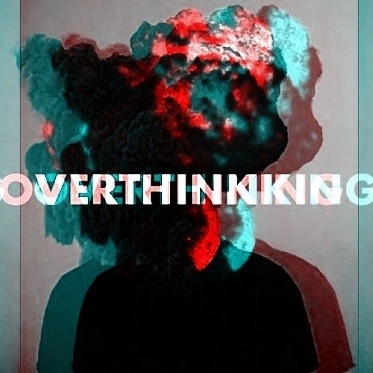Time, Choice, & The Human
Time is nature’s way of keeping everything — all change, that is — from happening at once. – John Wheeler
One eventually reaches a point in his or her journey to understanding where they are so far removed from what had seemed to be that they occupy a mental ‘location’ that is inexplicable altogether. This Rubicon, this harrowing point of no return, is so subtle that they must spend additional years attempting to integrate it into conventional frameworks lest they become lost in their own discovery.
Our Earth is currently filled with inchoate (under-developed) theories and beliefs about all things that concern humans and things that don’t and for the last few years I have, with painstaking detail, sampled many of them. There is much wisdom to be gleaned from even the most unwise person; the hallmark of the ignoble man is to believe that he can no longer learn. Nevertheless, the issue with so many of these methods of thinking, these philosophies, pedagogies, religions, creeds — whatever one wishes to call them — is that many of them fail to penetrate beneath the subtle sheet of existence. They are incomplete assertions that may satisfy a few phenomena, but they constantly fall on their face when applied elsewhere. When many of our peers open their mouths, their ideas are drenched with this taint of incompletion, this recalcitrant residue of underdevelopment.
As I have posited many times over the last few months, these ideas are perfectly sound and valid given the nature of the individual mind. The mind seems to be capable of something I have termed infinite recursion, which is to say that it can bring itself to be convinced of anything and find “proof” for it. Proof is the material we use to construct our version of reality. We can chop, isolate, and contort data to fit a particular conviction we posses. Minds seem to possess peculiar abilities to believe the wildest things since the Universe possesses an innumerable amount of data much of which is wild.
Moreover, the mind is governed by curious mechanisms that modern science has still been unable to account for. Many of these mechanisms have been stationed to the weak realms of “natural,” for lack of better terms, but their effects are noticeable in everyday society. One of my favorite thought experiments throughout the day is measuring my “natural” reactions to things and trying to guess all of the underlying motivations that drive me to these points. The complexity comes to fruition when I realize that many different motivations, many of which are seemingly unrelated, are present when I am pushed into a response state. My mind can isolate a particular set of motivations and follow that path of logic, however, this does not preclude the other “hidden” set of motivations, whose effect also played a part in responding. An axiom that accompanies this task is, “a person is defined by what they react to;” one can learn a great deal about themselves by auditing their mental responses and tracing what motivated them to do so. Humans are not as simple as we would love to make ourselves out to be; many times the fundamental drives, aware and hidden, oppose one another. Although this imprecision has driven many a thinker to insanity, it is this high level of complexity that permits humans to be as interesting as they are.
Many people are fond of saying that time does not exist. While this is somewhat true, it is very shortsighted. Time as a structure, seconds, milliseconds, hours, and epochs, is indeed arbitrarily derived, even though developed with high accuracy. But to only discuss time in this manner paints an impartial picture and thusly, leads to an impartial conclusion. Time as a concept, however, is a universal necessity, or at least a universal necessity with regards to our conscious apparatuses. Time measures change. Time is intimately interwoven into all things existing independent of humans. Although scientists have struggled to create an exact definition of time, a testament to the arbitrariness of its construction, it is indirectly seen in a variety of alternative explorations into the Universe.
Man’s most egregious sin is his hubris. Many of those who fancy themselves inquisitors of Nature erroneously ascribe a primacy to the status of humankind. We never question whether the apparatus of humandom, the mind, the body, or other, are merely constituents of a larger body. We feel as if something is or isn’t, does or doesn’t exist, should or shouldn’t be, per our own specifications and limited experiences, then extend that “revelation” to the entirety of existence. Thus, because concepts like time are seemingly futile, that thing is relegated to a place of unimportance.
Why does science differ so starkly from most other pursuits? Because science, and scientific methods, value, although don’t always achieve, a level of objectivity that takes nothing for granted. It attempts to structure the cosmos not according to any man’s understanding or logic, but per repeatable specifications which can exist independent of human existence. This does not guarantee that the actions taken or the results discovered will be so, but its intentionality fundamentally alters how one views himself in the cosmos.
Science is not without its faults; it is still a human pursuit and thus, cannot escape the structures innate to us. Whether our brains will evolve and shed these blinders, no one can know, but nevertheless, we should constantly be pushing the envelope of possible enlightenment.
What is choice? Many a philosopher has debated this intractable issue, summoning the complex logic of “bounded” rationales. Is someone free to choose if their choices are somehow bound? Is a person bound to their socializing environment? Are they bound to their genetic code? Does the mind possess the ability to break free from genetic predisposition and if so, is it then subjected to a higher ordered set of “bounds?”
When you place choice and time in the same arena, humans begin to act in highly intriguing ways. Our interactions, our roles, our abstractions of one another begin to evolve and become more complex. We are still competing for the exact same things, status, fitness, senses of well-being, peer acceptance, and so forth, however, as the interactions complicate, so must the structures which support them. Changes, remember time is the Universe’s way of keeping track of change, are allowed to unfurl freely and without objective meaning aside from those controlled by the interactions of the people. The choices themselves being to unfurl as fluidly as the changes in society permit and within this dialectic exists a continuous model of “free choice.” Free choice is a shortsighted concept, at any given moment choices are limited, however, taken over a measure of time, one can see the infinite variability of existence.
Thus, there is a distinct difference in contemplating a moment and contemplating the present moment which is a stream of change by nature. When time is broken into these constituent parts, more penetrating insight can be gleaned about what it truly means to be a human here.
Many of the issues concerning sociocultural, socioeconomic, and geopolitical concerns are due to the nearsighted tendencies of man’s contemplations. We do not wish to expand the infinite manifold, the collapsibility of the mind, because that requires a pruning of the mental states in toto, a frightening proposition. But, with careful consideration, and an adherence to the principles of scientific inquiry such as never aiming to prove anything, but only to disprove inconsistent occurences, one is able to free himself from the tyranny of incomplete logic.
Many things are; yet, few things have to be. It is imperative that we delve deep into the nature of things or what is the use?


